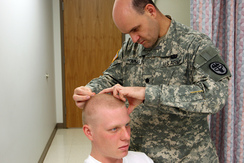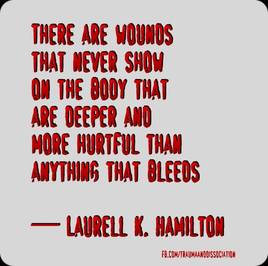 Anyone who knows me knows that I Love Food. I also firmly believe that food is the best kind of medicine. I always encourage my patients to focus on their diet first if there is any chance of diet helping or changing their symptoms. After all, diet is something that while hard to change emotionally at times, is something you CAN change at will to improve your health. If it affects your symptoms, it also gives you control over your symptoms which can be a very empowering experience once you embrace that change. Today, therefore, is a list of 7 superfoods for aging well. Since Facial Rejuvenation Acupuncture, Anti-Aging and lasting health and wellness are a primary focus in my practice, it is my pleasure to bring you this concise yet well researched list of additions to your daily diet that can help you stay well! Enjoy this short and sweet list, try eating these foods more regularly and see how you feel. I hope you'll agree that they really are super! Olive Oil Olive oil is beneficial for many reasons. Researchers now know that this oil contains the antioxidants called polyphenols, which can help prevent age-related diseases. Fish Fish like wild caught salmon are a no-brainer. They are packed with omega-3 fatty acids, which help regulate cholesterol levels and can improve heart health, which become increasingly important to take care of as we age. Nuts Nuts like almonds are packed with vitamins and minerals, as well as antioxidants and other nutrients that help fight aging. Those who incorporate nuts into their diet are shown to potentially add years on to their lives. Nuts are a great way to also get more protein into your diet and keep you energized. Dark Chocolate Quality dark chocolate not only tastes good but can also be great for your health. Cocoa is packed with flavonoids that are good for heart disease and promote healthy blood vessels. Add a little dark chocolate into your diet to help lower your risk of high blood pressure, type 2 diabetes, kidney disease and dementia. Blueberries Blueberries are known for their high amount of antioxidant properties. These berries can help inflammation and age-related deficiencies such as memory loss and motor function. Avocado Avocado is filled with omega-3s and vitamin E, which prove to have many health benefits. If you are fighting aging skin, avocado is your go-to food for rejuvenating your skin as well as stronger nails and hair. Turmeric Turmeric is an incredible herb that is often used in Chinese medicine for its anti-ageing benefits. A part of the ginger family, turmeric contains curcuminoids, which act as a powerful antioxidant to that can reduce inflammation and promote healing. This herb is perfect for Asian cooking and to add a little spice to dishes. Sources http://bit.ly/1SukKry http://bit.ly/1qL3OY5  PTSD is a physiological disorder that can result from being exposed to a traumatic event. The disorder results in several different symptoms including anxiety, irritability, insomnia and flashbacks. The effects of post-traumatic stress disorder in someone’s life can be far reaching. Feelings of hopelessness, shame and despair, problems at work or with relationships, serious health problems, depression, anxiety and drug or alcohol abuse are not uncommon. Getting help can be hard at first, but can have a great impact for helping PTSD. Acupuncture, MSRP & NADA The Military Stress Recovery Project (MSRP) is a unique program that provides free community acupuncture to veterans and active duty soldiers with PTSD and their family members. Treatment in a MSRP clinic is unique for several reasons. Patients are treated in a group setting, sitting in comfortable chairs. There is an environment of calm and support. The patients are treated using the National Acupuncture Detoxification Association (NADA) protocol, a series of 5 needles placed in one ear. The program is designed to address all the needs of people with PTSD. The MSRP clinics have been very successful. Patients report stress reduction, improved mental clarity, improved energy, enhanced performance, better sleep, fewer bad dreams and headaches, less anxiety and depression, reduced anger and pain, improved general health and better relationships. Cognitive Behavioral Therapy Cognitive therapy involves talk sessions between a therapist and their client. The therapist will help the patient work through their trauma and memory and can include techniques such as exposure therapy. This type of therapy is not for everyone but has been proven effective in beginning the steps toward recovery from a traumatic experience. Relaxation methods A lot of the times, anxiety and high blood pressure come with PTSD. Practicing daily relaxation methods can help lower stress and anxiety due to PTSD. Meditation, yoga and breathing exercises can all help lower heart rate and calm the mind. Spending time in a quiet place in nature can also have calming effects. Taking the time out each day to practice mindfulness can be very beneficial in lowering PTSD symptoms. Eye Movement Desensitization and Reprocessing EMDR therapy is practiced with a trained EMDR psychotherapist and involves allowing the brain to reprocess traumatic memories. It has been shown to reduce recovery time for PTSD patients and is less likely to cause triggers from the trauma than talk therapy. The American Psychiatric Association and Department of Defense/Veteran’s Administration recognize it as an effective treatment. Guided imagery Guided imagery is a meditation therapy that can be used at home and involves listening to dialogues to help reduce anxiety, depression and other symptoms of PTSD. The recorded dialogues are listened to a few times a week and involve imagining oneself in nature and a calm environment. Want to Learn More? Interested or have questions? Or do you know someone suffering from PTSD in the Portland/Vancouver/Ridgefield/La Center areas whom you think would benefit from Acupuncture in particular? If so, please feel free to book in at All Ways Well or email us. We are happy to help in any way we can! Sources: http://bit.ly/1rSwjDe, http://bit.ly/24Y9YCE  Watching someone you love and care about suffer from PTSD can be hard. You may feel like you don’t know how to act around them or want to help but don’t know how. Below are ways to support those with PTSD. Educate yourself The first step you can take in helping those you care about is learning more about PTSD and what it means to suffer from it. Take the time to understand the causes, symptoms and effects to better understand what your loved one is going through. When things get tough, it is easy to get frustrated with someone who is dealing with this disorder. Remember that they are going through something out of their control and your support is important. Listen, be patient Sometimes it can take a person dealing with PTSD a while before they seek treatment. While it is important to encourage treatment, they also need to come to this decision on their own. Being supportive and a good listener in the meantime can be very helpful for their ultimate choice to seek treatment. Don’t push them to talk, but let them know you are there to listen. If they do want to talk, try to listen without judgement so that they feel comfortable to keep coming to you. Make sure to take care of yourself Being around someone who is struggling with PTSD is not only hard for them, but can take a toll on you mentally as well. Make sure you are taking care of your physical and mental health as well. If you feel overwhelmed or stressed, don’t forget to take time for yourself to destress and relax. Understanding triggers and symptoms If you are living with someone with PTSD it is important to recognize their triggers. Triggers can be anything, sometimes an object, person or place that reminds them of their traumatic experience. Ask your loved one to explain what triggers them so that you can best help them avoid those triggers. Make a plan for when triggers or a flare up of symptoms do happen and ask them what you can do to help when this happens. There are many resources out there to help those with PTSD as well as their families and loved ones. For family and friends of veterans, visit www.ptsd.va.gov for more information and help. Sources: http://bit.ly/1rSwjDe, http://bit.ly/24Y9YCE  Quit the tobacco, and don’t start if you haven’t already It should be common sense now that smoking or chewing tobacco can lead to multiple types of cancer. If you are trying to quit, you are not alone. Try joining a support group or making a plan for yourself to set goals for quitting. Facing addiction is hard, but not using tobacco can save years of your life. Healthy diet A healthy, well-rounded diet can do wonders for lowering your risk of cancer and overall wellbeing. Cut out processed sugar and instead focus on whole foods such as fruits, vegetables and whole grains. Salmon is full of omega-3 fatty acids that have been shown to help fight cancer. Other fish that can help reduce the risk of endometrial cancer in women include halibut, sardines and tuna. Exercise According to the Fred Hutchinson Cancer Research Center, women who are active have about a 30 percent lower risk of breast cancer compared to women who do not exercise as much. Even walking 25 minutes a day can make a difference in preventing cancer. Studies have also shown that walking 4 hours a week can lower the risk of pancreatic cancer by half. Sun protection Protection from the sun should be another no brainer. Although sun exposure is necessary to get adequate amounts of Vitamin D, too much sun can be harmful. Make sure to wear sunscreen if you know you will be in direct sunlight for a long period of time. If you have any suspicious moles or have fair skin, make sure to check in with your doctor to ensure early detection if you think you might be at risk of melanoma. Green tea Green tea, in some ways, can be a miracle-working drink. According to the National Cancer Institute, there has been more than 50 studies that have shown a connection between the tea and lowering the risk of cancer. Green tea contains a chemical called EGCG that is packed with antioxidants, making it a strong cancer-fighting compound. Consider a glass of wine Great news, you don’t have to feel guilty about having a regular glass of wine at night. Studies have found that drinking a moderate amount of red wine can actually help lower the risk of certain cancer. Red wine contains the antioxidant called polyphenols that can help prevent the body from developing cancer cells. Also remember that too much alcohol consumption can have negative effects on the body and only should be consumed in moderation. Sources: http://bit.ly/1Tmk1vW, http://bit.ly/1Tmk0rR  PTSD or Post Traumatic Stress Disorder is a physiological disorder that can result from being exposed to a traumatic event. The disorder results in several different symptoms including anxiety, irritability, insomnia and flashbacks. The effects of post-traumatic stress disorder in someone’s life can be far reaching. Feelings of hopelessness, shame and despair, problems at work or with relationships, serious health problems, depression, anxiety and drug or alcohol abuse are not uncommon. Getting help can be hard at first, but can have a great impact for helping PTSD. My grandfather was an alcoholic and died of it, and I am sure his alcoholism stemmed from PTSD related to WWII. It had far reaching effects in my family, making PTSD an issue close to my heart that I feel lucky to treat in my office. A recent study into the efficacy of acupuncture as an adjunctive treatment for Post-Traumatic Stress Disorder has shown promising results. Researchers investigated the effects of acupuncture in adjunct to normal treatment approaches and the results showed significant improvement. Studies in the past have shown that veterans with PTSD are wary of seeking treatment for PTSD as many do not believe that mental healthcare can be effective. Researchers hope that with the increased efficacy of the adjunctive acupuncture treatment, veterans will be less reticent towards seeking treatment for PTSD. The acupuncture treatment also saw secondary benefits for those treated as many reported a decrease in depression and pain as well as a general improvement in mental and physical well-being. PTSD can be debilitating and even more so with little or no treatment. The Military Stress Recovery Project (MSRP) is a unique program that provides free community acupuncture to veterans and active duty soldiers with PTSD and their family members. Treatment in a MSRP clinic is unique for several reasons. Patients are treated in a group setting, sitting in comfortable chairs. There is an environment of calm and support. The patients are treated using the National Acupuncture Detoxification Association (NADA) protocol, a series of 5 needles placed in one ear. The program is designed to address all the needs of people with PTSD. The MSRP clinics have been very successful. Patients report stress reduction, improved mental clarity, improved energy, enhanced performance, better sleep, fewer bad dreams and headaches, less anxiety and depression, reduced anger and pain, improved general health and better relationships. Those suffering from PTSD should consult a doctor about treatment and discuss the option of acupuncture as well because it has been proven to help. If you're interested in trying acupuncture for PTSD issues please don't hesitate to contact me or book an appointment online anytime. Yours in Health, ~Rebecca Sources http://bit.ly/1Os0ndF http://bit.ly/1rSwjDe |
AuthorsRebecca M H Kitzerow is a Licensed Acupuncturist practicing in La Center, Washington. With over a decade of experience she has won 10 Nattie consumer choice awards from Natural Awakenings Magazine since 2014. Archives
July 2024
Categories
All
|
Photos from Hey Paul Studios, BeGreen_Studio, Pawel Pacholec, 1950sUnlimited, toulupaliaqaz, Joelk75, OnTask, Robert Gourley, cnu_sports, Mitya Ku, wuestenigel (CC BY 2.0), FootMassagez, 401(K) 2013, Mariana Heinz, @EdwardTerry, fishhawk, liverpoolhls, torbakhopper, Boemski, dolomitibl, Driscolltheque, Dave n Laura, Vaping360, MVWorks, Life Mental Health, MVWorks, mikefats, Scot Nelson, jfl1066, wZa HK, ruurmo, Guadalupe Cervilla, Army Medicine, GViciano, torbakhopper, adrigu, Saulo Cruz, Ben Cumming, marniejoyce, kcxd, JasonCorey, kanenas.net, Live to Create Photography, gm.esthermax, Unique Hotels Group, Zenspa1, mysiana, Tobias Lindman, Leader Nancy Pelosi, Kristoffer Trolle, swanksalot, Bill Selak, Parker Knight, stimpsonjake, Gedankensprudler, SuperFantastic, tonynetone, marniejoyce, JeepersMedia, Illusive Photography, 'Ajnagraphy', Iban Torras, scotted400, gtall1, dvanzuijlekom, BPPrice, Skley, torbakhopper, Renato Ganoza, anka.albrecht, QUOI Media, Public Domain Photos, Instant Vantage, Victor Tongdee, Free Grunge Textures - www.freestock.ca, sportEX journals, Nadja Tatar, angela n., marniejoyce, MVWorks, Karolina Kabat, Thomas Fisher Rare Book Library, UofT, ginnerobot, tracilawson, haven't the slightest, My Photo Journeys, Pierre Willemin, Florena_Presse, SuperFantastic, colindunn, zzkt, TraumaAndDissociation, ER24 EMS (Pty) Ltd., shixart1985 (CC BY 2.0), marniejoyce, Tomás Fano, freestock.ca ♡ dare to share beauty, Archives New Zealand, Jaykhuang, airdrie.m, Go-tea 郭天, OnTask, wuestenigel, focusonmore.com, Disney | ABC Television Group, Andrew Gustar, Didriks, ConstructionDealMkting, charlywkarl, barnimages.com, Lel4nd, runwaypilates, michaelstephanfotografie, McLevn, TraumaAndDissociation, eLife - the journal, Lars Plougmann, wuestenigel, shixart1985, boviate, davis.steve32, kevin dooley, @the.photoguy (insta), frederic.gombert, Feathering the Nest, Victor Tondee, shixart1985, wuestenigel, Joe K Gage, kennethkonica
 RSS Feed
RSS Feed
